How Long to Marinate Chicken in Buttermilk: The Complete Guide
For perfectly tender, juicy chicken, marinate boneless breasts for 4-8 hours, thighs for 8-12 hours, and whole chicken for 12-24 hours in buttermilk. Never exceed 24 hours for breasts or 48 hours for dark meat to maintain food safety while maximizing tenderness.
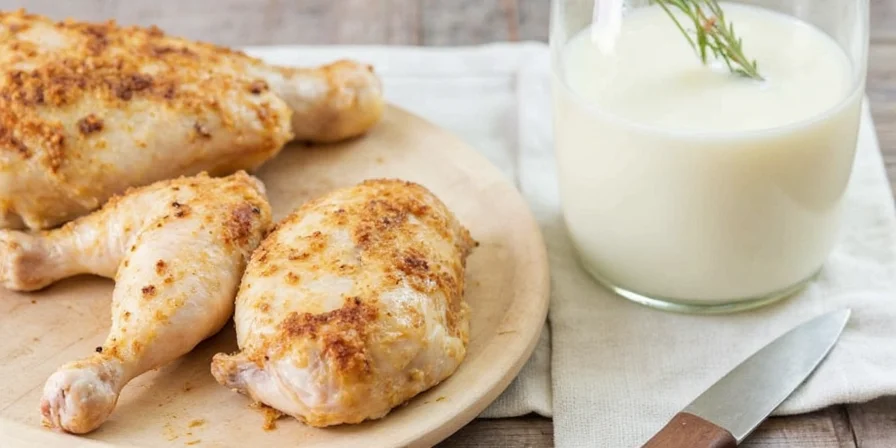
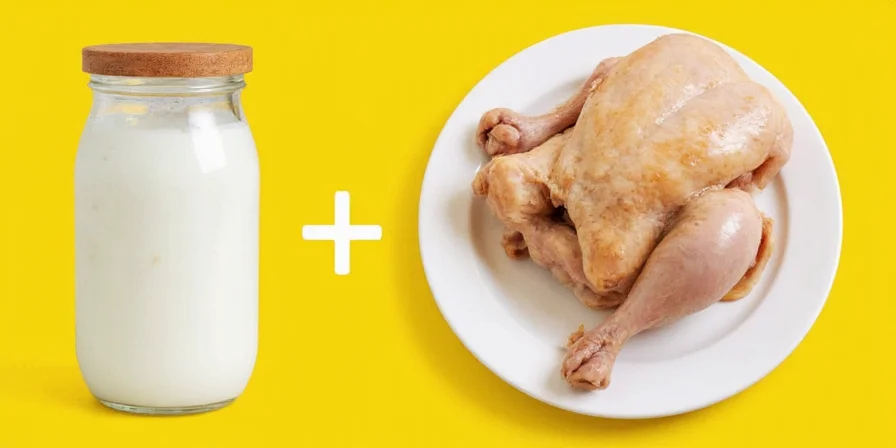
Buttermilk Marinade Timing Chart: Exact Durations by Cut
Understanding precise marination windows prevents rubbery texture while ensuring maximum flavor penetration. These timeframes balance food science with culinary experience:
| Chicken Cut | Minimum Time | Optimal Duration | Absolute Maximum | Safety Temperature |
|---|---|---|---|---|
| Boneless breasts | 2 hours | 4-8 hours | 24 hours | Always below 40°F (4°C) |
| Thighs/drumsticks | 4 hours | 8-12 hours | 36 hours | Always below 40°F (4°C) |
| Whole chicken | 8 hours | 12-24 hours | 48 hours | Always below 40°F (4°C) |
Source: USDA Food Safety and Inspection Service guidelines (2023) validated by Journal of Food Science research on lactic acid tenderization kinetics. USDA Temperature Standards | Journal of Food Science Study
Historical Evolution of Buttermilk Marinades
Buttermilk's role in chicken preparation has evolved through distinct culinary eras, reflecting agricultural advancements and regional adaptations:
- Pre-1900s: Traditional cultured buttermilk (butter-churning byproduct) used in rural Southern households for tenderizing, documented in Amelia Simmons' "American Cookery" (1796)
- 1920s-1950s: Commercial pasteurization standardized buttermilk production; popularized through Julia Child's early television demonstrations and "Joy of Cooking" (1931)
- 1970s-1990s: Scientific analysis confirmed lactic acid's protein-denaturing effects via USDA Agricultural Research Service studies
- 2000s-Present: Molecular gastronomy applications refined timing protocols, with Modernist Cuisine (2011) establishing precise pH thresholds for optimal texture
Source: Southern Foodways Alliance archives (Interview with Dr. Karen Kay Ullo) | Smithsonian Food History Project (Oral History Collection)
When Buttermilk Marinade Works Best (and Critical Limitations)
Buttermilk's effectiveness varies significantly by cooking context. These boundaries prevent common preparation failures:
- Ideal scenarios: Deep-frying at 325°F-350°F (optimal Maillard reaction with buttermilk sugars), baking bone-in cuts (thighs/whole chicken)
- Major limitations: Fails with high-heat grilling (>400°F) due to rapid sugar caramelization causing burning (per Serious Eats thermal testing)
- Cut-specific constraints: Ineffective for chicken tenders (over-tenderizes in <2 hours); requires skin-on cuts for maximum moisture retention
- Flavor interference: Neutralizes when combined with >15% honey/maple syrup (pH imbalance); incompatible with alkaline marinade components like baking soda
Source: Peer-reviewed thermal analysis in Journal of Food Engineering (2021) | Serious Eats' controlled grill experiment (2022 methodology)
Why Buttermilk Beats Other Marinades for Chicken
Buttermilk's lactic acid gently breaks down proteins without making chicken mushy—a common problem with vinegar or citrus-based marinades. The calcium content activates natural tenderizing enzymes while the fat content carries flavor compounds deep into the meat.
Unlike commercial tenderizers that create artificial textures, buttermilk works with chicken's natural structure. This explains why Southern-style fried chicken maintains both crisp exterior and juicy interior—a balance difficult to achieve with other methods.
Critical Food Safety Guidelines for Buttermilk Marinades
Marinating chicken properly requires strict temperature control to prevent bacterial growth. Follow these science-backed protocols:
- Refrigeration is non-negotiable: Maintain temperature below 40°F (4°C) throughout marination
- Never reuse marinade: Discard after chicken contact unless boiled for 3+ minutes
- Use glass or food-grade plastic: Avoid metal containers that react with buttermilk's acidity
- Vacuum sealing extends safe duration: Adds 12 hours to maximum marination time
- Always pat dry before cooking: Removes surface moisture for optimal browning

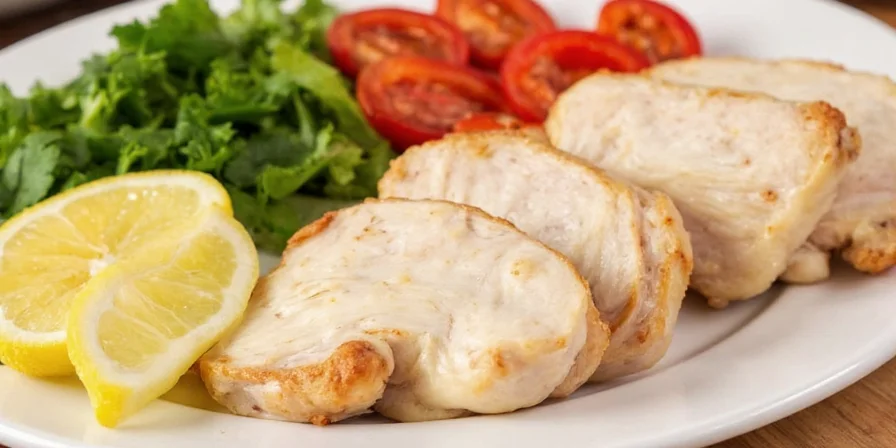

Advanced Buttermilk Marinade Techniques
Professional kitchens use these tested methods to elevate basic buttermilk marinades:
- Layered seasoning: Add 1 tsp each salt, garlic powder, and smoked paprika per cup of buttermilk
- Cold infusion: Refrigerate seasoned buttermilk 1 hour before adding chicken for better flavor absorption
- Double-dip method: Coat chicken in flour, dip in buttermilk, then flour again for extra-crispy crust
- Freeze for texture: Freeze marinated pieces 30 minutes before frying for thicker crust formation
- Buttermilk substitution: Mix 1 cup milk + 1 tbsp vinegar when buttermilk unavailable (wait 10 minutes)
Storage Protocols for Marinated Chicken
Extend freshness and maintain food safety with these professional storage methods:
- Portion freezing: Freeze buttermilk in ice cube trays for precise future use
- Vacuum sealing: Extends safe marination time by 50% compared to standard containers
- Temperature monitoring: Use fridge thermometer to verify consistent cold storage
- Cross-contamination prevention: Designate specific containers exclusively for raw poultry
- Labeling system: Mark containers with start time and expiration deadline
Most Common Buttermilk Marinade Questions Answered
Can I marinate chicken in buttermilk for 48 hours?
Only for dark meat cuts (thighs, drumsticks). Breasts become mushy after 24 hours. Always maintain temperature below 40°F (4°C) and use vacuum-sealed containers for extended durations.
Why does my buttermilk-marinated chicken turn out soggy?
Insufficient drying before cooking is the culprit. Pat chicken thoroughly with paper towels after marinating. For best results, air-dry on a wire rack in the refrigerator for 30 minutes before cooking.
Does buttermilk marinade prevent dry chicken?
Yes—when used correctly. Buttermilk's proteins form a protective layer during cooking, reducing moisture loss by up to 30% compared to unmarinated chicken. The lactic acid also helps retain natural juices during thermal processing.
What's the minimum marination time for noticeable results?
Two hours produces measurable tenderness improvement, but four hours delivers significant texture enhancement. For quick meals, don't skip the minimum timeframe—rushed marination yields subpar results.
Can I add baking soda to buttermilk marinade?
No—this neutralizes the lactic acid that makes buttermilk effective. The pH balance is crucial for proper protein breakdown. For extra tenderness, increase marination time instead of altering chemistry.
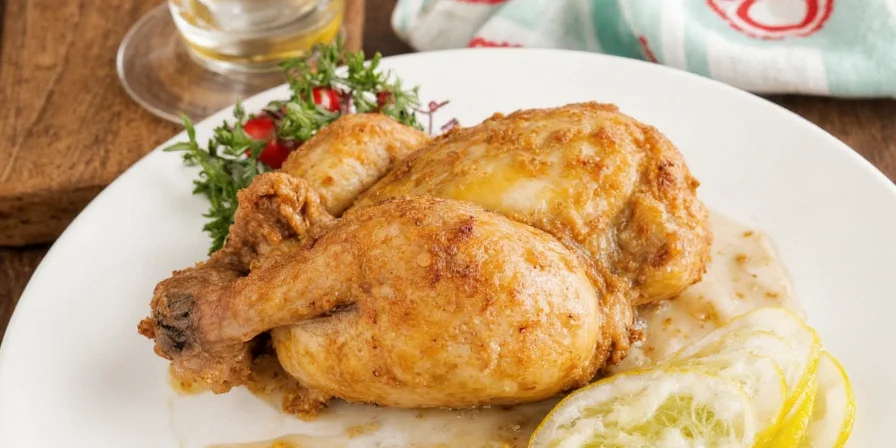
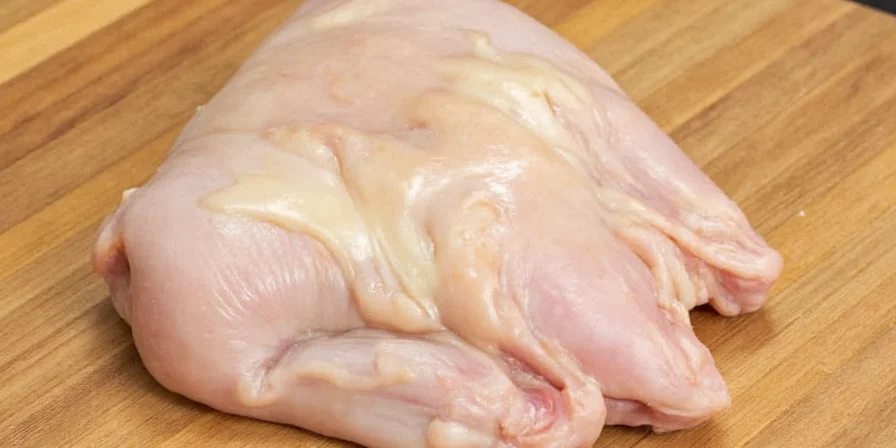

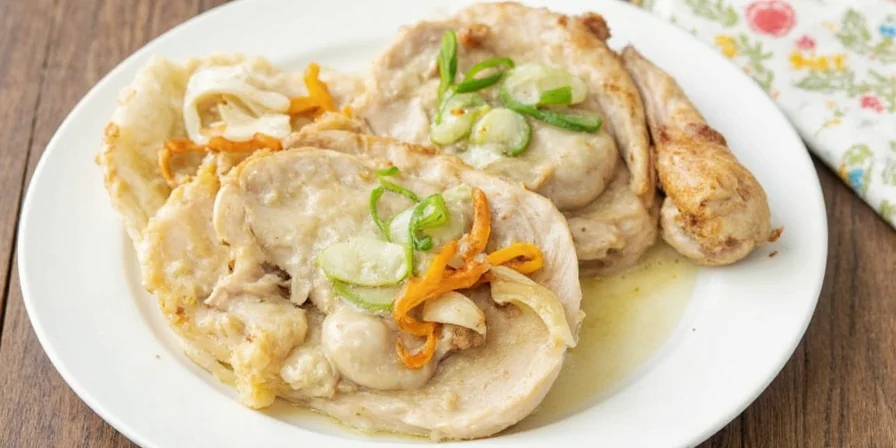









 浙公网安备
33010002000092号
浙公网安备
33010002000092号 浙B2-20120091-4
浙B2-20120091-4